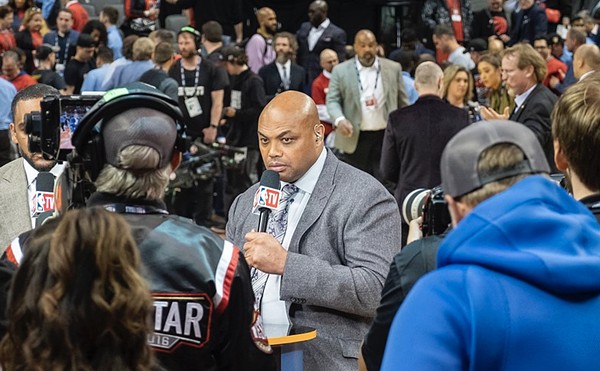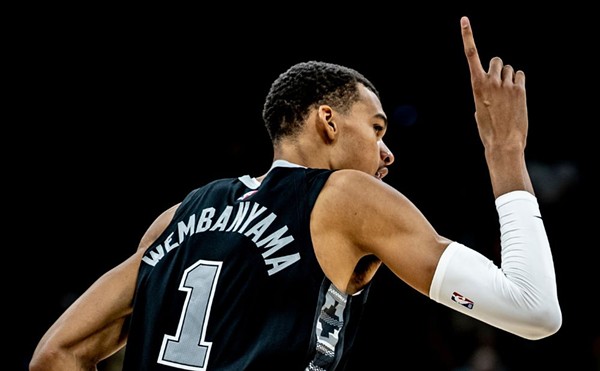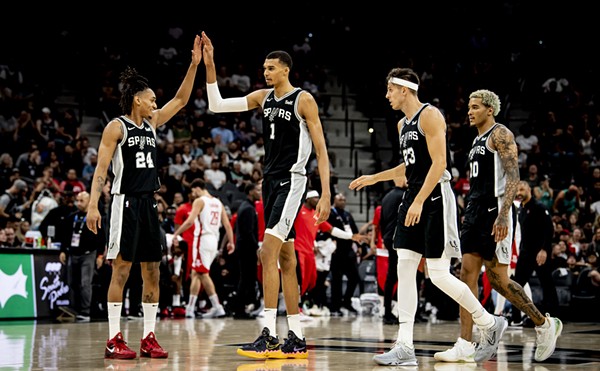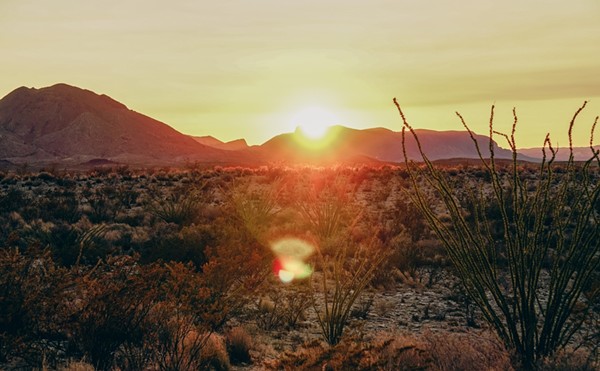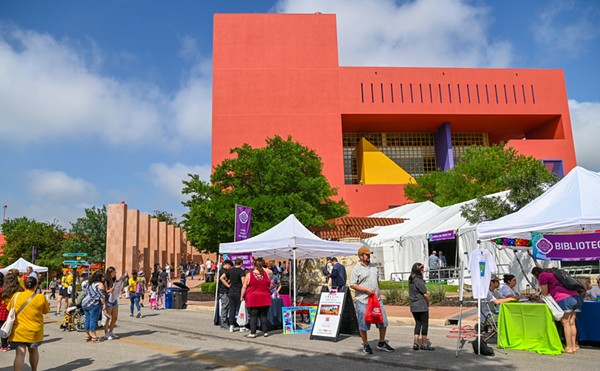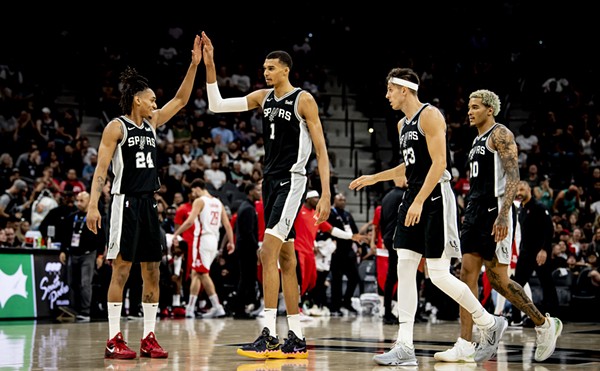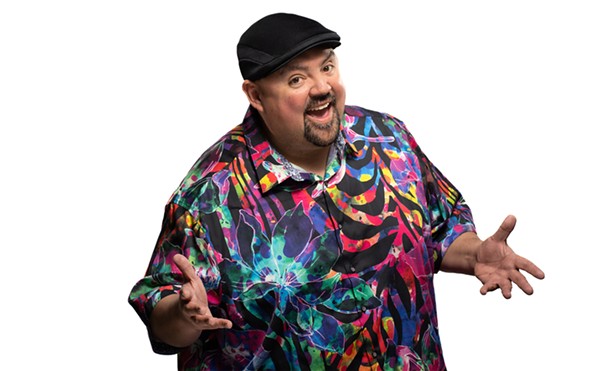Irwin Tang is one of those authors who incurs controversy with every key stroke, from How I Became a Black Man and Other Metamorphoses, his well-received short-story collection based on growing up in College Station, to his social history of the Aggie bonfire disaster to his blistering
| Irwin Tang: author appearance 4pm Sat, Aug 26 Borders Alamo Quarry 255 E. Basse 828-9496 |
I’ve been looking at passages in my book …
A lot of writers say they can’t read their own writing after they’re done. They just have to move on and not look back.
Well, I kind of realized as I was looking through the bookstores the past few days that one of the reasons why I have to write is because I can’t find the stories that I want to read in the bookstores. I have to write my own for myself so I can have stories that for whatever reason satisfy me, or reflect the stories that I need to hear.
You’ve talked in other interviews about how Asian-American literature — and I think this is true of a lot of ethnic literature when it first comes out — it sets a stereotype that’s almost as rigidly defined for itself as the one the dominant culture created for it. It’s different, but it has its own strict rules.
Of course the major publishers are owned and for the most part operated by people who aren’t Asian or Asian-American, and they look for certain things that they either think will sell or entertain themselves or make themselves feel better about themselves. So the most popular string of fiction in the United States when it comes to Asian-Americans has to do with Asian-American women who fall in love with white men, and vice versa, and of course that is marketable to a lot of white people.
And it fits a dominant mode of literature which is the slightly more highbrow chick-lit, triumphal — or bittersweet triumphal — narrative.
I don’t read a lot of chick lit — and I don’t really care if an Asian woman or a white man want to write about falling in love with each other, but I just think there’s way too much of it and it represents the psychology of the publishers in the market. I mean it’s the same reason why men of color were not allowed to marry white women for most of this nation’s history. And that’s the same reason why most of the Asian-American literature out there is dominated by a sort of sense of superiority of white people.
Since we’re talking about commodification to some extent, do you think that the way that ethnic popular culture becomes commodified — the way hip-hop became such a huge pop-culture commodity, for instance — how helpful or not do you think that is in overcoming underlying prejudices or in creating better relationships between cultures?
I think it’s different for every situation. For instance, the recent debates about illegal immigration bring up a lot of issues of the nation feeling insecure about its borders and its identity, and also people of Asian `descent` feeling insecure about their place in this country. Well Asians have felt like that ever since they’ve been in this country; no matter what place they’ve lived at, they’ve probably felt more insecure about their place here than any other group because no matter what neighborhood they live in, almost any neighborhood, they’re gonna be the minority — even among Hispanics and African-Americans. So in a lot of ways Asians are always seeking to make themselves acceptable among the larger population since the way that we feel comfortable doing it, and the way that whites and others feel comfortable about accepting us, is for us to take on as innocuous a form as possible. In that sense, to have fiction that presents us as submissive and innocuous and to put forth our women first and foremost as representative of our people, puts forth an image of us that is the most acceptable and the least threatening that we can possibly put forth. And for the most part they do allow us to remain in the United States as citizens and as legal or illegal immigrants. In a lot of ways the mindset of Asian-Americans has always been, What do we need to do to be able to stay in this country and not have our neighborhoods burned down and to be able to run our businesses and maybe to be able to get out of the laundry business and into other professions — which we were just able to do in Texas in say the last 50 years or so.
You don’t have children?
No.
If you did, or do someday, what are some ways you would want to socialize them differently than maybe you were raised, or what are some key things you would want to impart to them as they grow up and are confronting their own issues of identity?
I would try to make them feel as least alientated from people — whether it’s Asian people, Chinese people, Americans, or African Americans, or whatever — make them feel as least alienated as possible, because in a lot of ways the alienation that I felt — which I feel sort of began the moment I was born; they labeled me white on my birth certificate, rather than what I was — really made me distort and in some ways obliterate my own identity, and constantly shift my identity to fit the situation in order just to feel comfortable. In a small town like College Station, there were huge shifts in the environment, from extremely hostile to friendly country neighbor-folk to rambunctious bunches of white Corps members — members of the Corps of Cadets at Texas A&M — to Chinese environments where everyone was Chinese and we’re all speaking Chinese and the entire outside world was completely forgotten — except for when we turned on the television and we heard the latest Michael Jackson song, and me and my sister would break dance or moon walk or whatever.
So I would try to just help them adapt and not force things on my children. My father shoved me into Little League; it was a foreign sport to me. I didn’t like feeling on the spot because I was Asian among a bunch of people who weren’t and I never played baseball in my life — I sucked at it. So I wouldn’t do things like that.
I would try to make my kids feel comfortable in every situation, and to help them deal with racism in a less rageful or self-hateful manner. You know my parents rarely ever talked directly about racism with me; they just sort of responded to me. I took their example. When `my parents` first moved to College Station, my father couldn’t even get service at the local post office. Although I never witnessed this, he told me that when the clerk wouldn’t serve him, he just flew into a rage and started yelling at everyone. Eventually the post-office manager came out and asked him to calm down and said that he would get his service. So in a lot of ways, my response to racism and to being picked on and shoved around and spat on or whatever, was either to hate and just want to kill, literally kill or shoot or whatever the offenders, and also to commit the same sort of act of violence psychologically on myself, to hate myself.
When you’ve talked about the Shaquille O’Neal incident `in which Shaq verbally taunted Houston Rockets’ Chinese center Yao Ming, and your commentary about it for Asianweek.com, you’ve talked about how enraged you felt, about how it still can provoke this feeling of, Oh my god, it’ll never go away …
`Laughing` Oh my god. People can never imagine what it’s like to feel racism your entire life, and then to have it sort of screamed in your face as an adult. You know, there are two choices at that point: You can either stamp down your anger and any emotional response and in some way sort of suppress your own humanity, in some ways undercut your own dignity. Or you can try to respond to it, and I’ve never been able to de-pride myself. That incident, which I heard over the radio, I actually couldn’t sleep sometimes thinking about it. I grew up on nonviolence — my parents instilled in me a hero worship of people like Dr. Martin Luther King, Gandhi, and people like that, and I worked for Cesar Chavez when I was 23 years old. Philosophically I deplore violence; I can’t stand to see it on television or enacted on other people. But this sort of automatic desire to commit some terrible act of violence overcomes me when an act of racism is presented to me in my face. I just wanted to really do something terrible to Shaq. And it’s a terrible, terrible feeling because I don’t want to feel like that, and there’s really not many ways to get it out of your system. What I tried to do was make it a real news story. I tried to get AP, LA Times, Sports Illustrated, so on and so forth, to cover this story. I mean any time there’s racism in sports, they all cover it, except when it came to Asians. And a lot of times sportscasters were the ones who were racist against Asians. So then I had to take it in my own hands, and then nothing really happened for about a week, and then ESPN quoted heavily from my editorial, and then it became this national sports story, and I had to actually field comments like, “By Shaq making that sort of ching-chong noise, isn’t he trying to speak Chinese?” Or “Shaq’s black, Can he really be racist?” Or Shaq himself calling me “that idiot writer” and saying I didn’t have a sense of humor.
How do you answer that question: How can Shaq be racist if he’s African-American?
Well, it’s kind of like asking, if I get spat in the face, does that mean I’m unable to spit on someone else’s face? Of course I’m able to. The title of my opinion piece was “Tell Shaq to Come Down to Chinatown,” and it’s like, yeah, me walking through Texas A&M University, the Corps might run by chanting something about dropping napalm on little Vietnamese kids or something like that — which they’ve done before — but if one of those Corps guys comes down to Chinatown in Oakland and starts mouthing off, he might end up with a knife in the back. It just depends on the situation, who’s got the power. So that’s the way I see it: Everyone has power. To say that some people can’t be racist is almost like saying that some people can’t have power, and that I think is kind of dehumanizing.
Tangentially related to that, let’s talk about your time working for Cesar Chavez. What were some of the lessons you learned?
I guess the main lesson I learned is being an activist on the Left wasn’t all about holding hands and singing “Kum By Ya” and “We Shall Overcome.” There was just some really hardball work that was done and there were a lot of people in the union movement that were really hardnosed activists. They weren’t gonna take any crap and there was a lot of hardnosed bargaining and negotiating with growers and boycotts and just trying to threaten as much economic damage as possible against those who wouldn’t respect the unions. So basically what I learned was a more hardnosed form of progressive activism from working with Chavez.
And the main other thing was I really grew close to the Latino community. In a lot of ways my racial affinities growing up were affected by who picked on me, who defended me, who was half-and-half. Well, it tended to be like this: White kids tended to pick on me, although a few of them would stand up for me. Black kids tended to stand up for me, and Hispanic kids were sort of half-and-half. And in College Station there was either black or white; there was no sort of racial identity for `Hispanic kids` in my mind until I joined as an activist for the union and I felt like I was one of the Mexican-American activists. I guess I sort of brought some Mexican-American culture into my soul.
In a lot of ways I learned to eat spicy food from living with the farmworkers as opposed to my father, who is from Hunan province, where they eat probably as hot of food as anybody in the world. So in some ways I became more of a Hunanese by living with Mexican-Americans than I did by living at home with my Hunanese father.
In addition to Black and Latino culture, is there a part of white culture that you embrace?
Well, being in America we all become white to a certain degree, because the beauty of what people have done in the United States is that they have made mainstream culture white culture and white culture mainstream culture — it’s a syllogism. So in order to operate in America, to live in America, I have to be in large part white.
I mean, like, enthusiastically, not against your will.
Well, sure. The English language, as written and spoken by white people and white writers, I’ve embraced that. Ralph Ellison said freedom is being able to express what’s up in your head, so in that sense by embracing the English language as spoken by white people, black people, Asian people, and Hispanics, I’ve been able to free myself and been able to express all of the many — and I do have many — shades of feeling, and experience in my head and in my heart. And so in a lot of ways, allowing myself to embrace white culture, especially spoken and written culture, has sort of liberated me.




